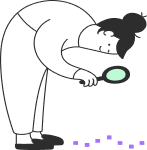We tend to think to think of exercise as being good for our bodies, but it can be good for our brains too. The mental health benefits of exercise are well-documented and if you’ve ever experienced the post-workout endorphin rush which leaves you feeling invincible, you’ll know first hand how addictive it can be.
Don’t lose your grocery list with a free Samsung Food Account

But aside from that period after your run or gym session where you’re convinced that you’re the strongest, most powerful, and most virtuous person on the planet (pass the green smoothie, darling – your body is a temple), what other ways does exercise help improve mental health?

The benefits of exercise on mental health
Between pandemics, economic hardship, and the stresses of everyday life, it’s safe to say that we’re living in hard times. In fact, research suggests that rates of anxiety or depression are around six times higher post-pandemic than pre-pandemic. And even if you aren’t diagnosed as having a mental health condition, the current climate is certainly enough to have you down in the dumps on occasion.
Thankfully, exercise is an effective natural way to improve your mental health. Though it’s not a magic pill to fix everything, it can combat some mental health problems both chemically and behaviourally.
Regular exercise may help with everything from sleep quality to reducing anxiety and stress. If you need a bit of extra motivation to lace up those sneakers and get your heart pumping, here’s how regular exercise could make you feel better mentally and emotionally.
1. Reducing feelings of stress and anxiety
While your struggles won’t instantly disappear after a jog, regular physical exercise can lessen feelings of anxiety. Research has shown that exercising decreases sensitivity to the body’s reaction to anxiety. Basically, your body will be less likely to go into overdrive (think sweaty palms, feelings of dread, racing thoughts) when you’re feeling anxious.
Why is this? When you exercise, your brain releases endorphins which are natural mood enhancers. On top of this, workouts help reduce the levels of cortisol (known as the ‘stress hormone’) in your body. So you’re getting a double whammy of feel-good endorphins and reduced levels of stress hormones.
Exercising can help your brain grow new neurons, which studies indicate might play a role in relieving symptoms of depression and anxiety. If you’re a fan of yoga, it can also serve as a form of meditation – which helps you to relax and calm anxiety and stress.

2. Exercise benefits mental health by improving sleep quality
We all know that a good night’s sleep can make you feel like a different person the next day. Unsurprisingly, good sleep quality has been linked to improved mental health and decreased stress.
If you’re not one of the lucky ones who naturally sleeps well, exercise can improve sleep quality by helping you fall asleep more quickly and reducing how much time you spend awake during the night. It can also help you feel less sleepy during the day, so you’re less likely to reach for that 1pm coffee.
Discover Samsung Food user top recipe categories

3. Improved cognitive function
As we age, our bodies and our minds change and begin to deteriorate. That’s quite normal, but exercise is one way to reduce the risk and protect yourself against age-related deterioration of cognitive function. Essentially, exercise can help keep your brain young.
This means exercise can help to protect long term and short term memory, improve concentration, and safeguard key cognitive capabilities like decision-making, reasoning, language, and attention.
4. Alleviating depression through exercise
If you’re struggling with depression, getting out of bed can be a monumental task in itself. But if you can manage a workout, research shows that exercise can reduce the severity of depression and improve mental health.
In fact, exercise may be as effective as other treatments for some people, including therapy and medication. Though of course, your specific treatment for depression is something you need to discuss with your doctors.
Why? It may be due to the growth of new nerve cells which were mentioned earlier in relation to anxiety. When growth happens in the hippocampus, the new nerve connections can help regulate your mood more effectively.

5. Improving confidence
It can be hard to objectively measure confidence. But it makes sense that regular exercise could improve your confidence and self-esteem. Building strength, releasing endorphins, finding social support through sport or activities, and finding a sense of accomplishment through exercise can all help bolster your confidence.
And though research into the relationship between exercise and mental health in terms of confidence hasn’t been as extensive as exercise and sleep, studies do suggest that there is a positive relationship between physical activity and self-esteem.
Additionally, if you see physical benefits such as improved muscle tone, weight loss, and better immune strength, you might feel better in yourself too.
Exercise and diet can work together for better mental health
If you’re in need of a pick me up, hitting the gym could be just the ticket. Exercise, especially when coupled with a healthy diet, can have a powerful effect on your mental health.
Join Samsung Food for free to access healthy eating communities, meal planning resources, and recipes which fit your health goals.


